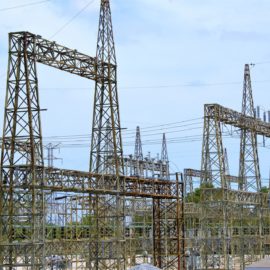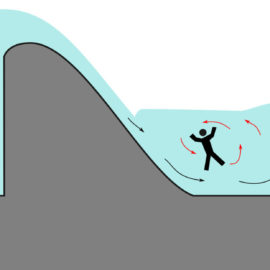
https://netl.doe.gov/coal/carbon-storage/faqs/carbon-storage-faqs
Carbon storage was one of the plans to cut emissions and one that the industry backed. The state approved this plan and has authorized state lands for storage.
The State Mineral and Energy Board approved the first two agreements that lay the groundwork for carbon capture in Louisiana on state lands. The board debated the topic during executive session Wednesday morning before approving deals with Houston-based Capio Sequestration and Pennsylvania-based Air Products Blue Energy. Both companies requested permission to drill injection wells deep underground to permanently store carbon through a process known as sequestration. Capio is expected to pay the state nearly $1.3 million up front in addition to $2.2 million each year in rent and $1.60 per ton of carbon stored as part of its deal. Air Products would pay by the acre which totals $6.1 million plus $1.50 per ton of carbon stored.
theadvocate.com
Capio Sequestration was not the only company competing for the states business and the ones not selected are not happy.
During the public comment, several other companies vying for some of the same public land swaths for their own carbon capture projects protested. Those firms protesting included Shell, Denbury Carbon Solutions and Perdue Petroleum. Shell asked the board to accept a proposal in June, which includes state lands in the other companies’ agreements. Shell’s agreement could net the state $100 million more than the deals with Capio and Air Products Blue Energy, said Lee Stockwell, general manager for carbon capture. “We’ve offered to pay a substantial amount up front,” Stockwell said.
The state likes the attention but is mum on why the selection went as it did.
Board chair Paul Segura Jr. said that Louisiana is “flattered” with all of the interest for carbon capture but declined to disclose why Capio and Air Products were chosen, citing the executive session discussion. “We’ve gotten a lot of interest and we’re challenged with making the decisions with what is best for the state,” Segura said. “Each of these deals are a little different.” The process includes removing emissions such as carbon dioxide and pumping it under pressure which causes the gas to become liquid and therefore more likely to remain deep underground for decades. Louisiana state leaders want to reduce net greenhouse gas emissions up to 50% by 2030 and hit ‘net zero’ by 2050. Carbon capture technology is a key facet of that plan.
Capio explains what their process involves.
Capio’s project is tied to the proposed Gron Fuels complex at the Port of Greater Baton Rouge being developed my Fidelis Infrastructure. The company called the plans a “key component” to its overall complex which would manufacture renewable diesel fuel. Capio wants to drill wells across Ascension, Iberville, Pointe Coupee, St. John the Baptist, St. Martin and St. Landry parishes in an area spanning 44,511 acres. The agreement would include only state-owned land which are wildlife refuges such as the Maurepas Swamp Wildlife Management Area and the Sherburne Wildlife Management Area. “Capio Sequestration’s operating agreement is the first step towards developing Louisiana’s potential to lead the nation in climate impact projects. As the operating agreement is not yet finalized, we are unable to comment at this time,” said Pete Hollis president of Capio and senior vice president of operations for Fidelis Infrastructure.
There is more state land to be drilled.
Air Products Blue Energy’s application is to drill wells across Livingston, St. James, St. John the Baptist, Cameron, Tangipahoa parishes spanning 122,455 acres. The state land would include the Maurepas Swamp WMA, Lake Maurepas and Sabine Lake. Each project would cost several hundred million dollars each and the cost to capture carbon per ton varies between $58 per ton and $232 per ton. The U.S. Department of Energy projected by 2030 carbon capture costs could drop to $30 per ton.
The permitting process involves the EPA.
The permitting process right now includes an application to the Environmental Protection Agency for all carbon capture wells which is meant to prevent contamination of groundwater. The Environmental Protection Agency is reviewing a permit for a company interested in drilling carbon sequestration wells on private land outside of Lake Charles, Gulf Coast Sequestration. The EPA has not gotten applications from Air Products Blue Energy or Capio. Local environmental group Healthy Gulf, opposes carbon sequestration plans. “Carbon sequestration projects on the Gulf Coast destroy precious remaining wetlands and are just the latest incarnation of environmental racism,” said Naomi Yoder, staff scientist at Healthy Gulf. “We need a just transition away from fossil fuels, where our communities are supported to live and thrive, including good jobs, safe and secure housing and clean air and water.”
Being built on fill, we are lucky not to be a potential drilling site for the carbon capture.



